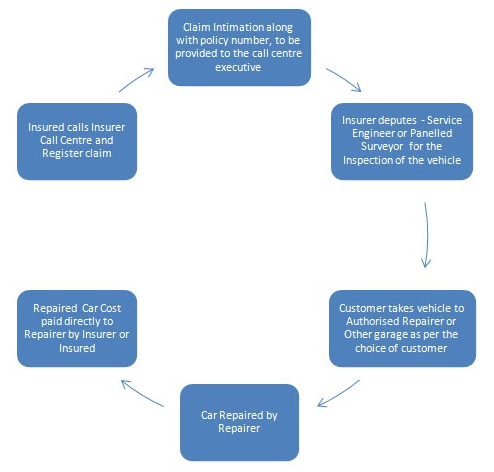When you’re involved in a car accident, emotions run high. Whether it’s a fender-bender or a more serious crash, one of the most critical steps you can take is to call the police and file a report. A police report not only provides an official account of what happened—it can also play a significant role in the outcome of your insurance claim.
But what exactly does a police report contain? Why do insurance companies value it? And what happens if you don’t have one?
This article explores the importance of a police report when filing an insurance claim, how it influences the claims process, and what to do if you can’t get one.
What Is a Police Report?
A police report, also known as an accident report, is an official document prepared by a responding law enforcement officer at the scene of a traffic accident. It contains key details about the incident, including:
- Date, time, and location of the accident
- Names and contact information of drivers and passengers
- Insurance information
- Witness statements
- Description of vehicle damage
- A diagram of the crash scene
- Officer’s narrative of events
- Any citations or violations issued
- Weather and road conditions
Once filed, this report becomes part of the public record and can be requested by involved parties, legal representatives, and insurance companies.
Why Is a Police Report Important in an Insurance Claim?
When you file a claim with your car insurance company, they need as much information as possible to determine:
- Who was at fault
- What damages were sustained
- Whether the claim is valid
- How much to pay (if anything)
Here’s why a police report is so valuable in this process:
1. Establishes an Objective Record
The police officer acts as a neutral third party and documents the scene based on observations and interviews. This helps reduce disputes between drivers and offers credibility to your version of events.
2. Helps Determine Fault
In many cases, the report will include the officer’s opinion on who was at fault, based on evidence, vehicle positions, and statements. Insurance adjusters often use this information when assigning liability.
3. Supports Injury and Damage Claims
The report may document visible injuries, vehicle damage, or whether an ambulance was called. This can strengthen your case if you’re claiming for medical expenses or repairs.
4. Contains Witness Statements
If there were any witnesses to the accident, the police report might include their statements and contact information. This adds another layer of evidence supporting your claim.
5. Essential for Certain Claims
Some insurance companies may require a police report before processing specific claims, especially in cases of:
- Hit-and-run accidents
- Stolen vehicles
- Vandalism
- Accidents with injuries or major damage
Is a Police Report Required to File an Insurance Claim?
While not always legally required, a police report is highly recommended. You can typically file a claim without one, especially in minor accidents with no injuries or significant damage. However, not having a report could make the claims process more difficult.
Without a police report, it may become a case of “your word against theirs.” This lack of objective evidence can delay the investigation or lead to your claim being denied or reduced.
When Should You Call the Police After an Accident?
It’s best to call the police immediately if:
- Anyone is injured or killed
- The vehicles are not drivable
- There is significant property damage
- A driver flees the scene (hit-and-run)
- One of the drivers seems intoxicated
- You suspect the other driver doesn’t have insurance
In most states, you are legally required to report an accident involving injury or property damage above a certain threshold (often $500 or $1,000). The police will file an official report, and you can request a copy later for your claim.
How to Obtain a Police Report
Once the report is filed, you can usually obtain a copy from:
- The local police department or state highway patrol office
- The department’s website (some jurisdictions offer online access)
- A third-party report service used by law enforcement
There may be a small fee involved. You’ll likely need to provide:
- The date and location of the accident
- Your driver’s license number
- The police report number (if you were given one)
Some insurance companies may even request the report directly from the police on your behalf.
What If a Police Officer Doesn’t Respond?
Sometimes, police may not respond to a minor accident, especially in busy urban areas or if there are no injuries. In that case, it’s still important to document the accident yourself:
- Exchange information with the other driver (names, phone numbers, insurance, license plate numbers).
- Take photos of the scene, vehicle damage, skid marks, and road signs.
- Collect witness statements and contact details if possible.
- File a report at the nearest police station—in some places, you can do this within 24 hours after the accident.
Many states allow you to file a self-report or civilian accident report, which can be submitted to both the police and your insurance company.
How Insurance Companies Use Police Reports
Once submitted, your insurer will review the police report as part of the claims investigation. They use it to:
- Confirm key facts (location, time, weather)
- Identify conflicting statements
- Determine potential policy violations
- Decide whether to accept, deny, or negotiate your claim
- Evaluate the likelihood of a legal dispute
In disputes over fault, insurance companies may also compare your report with the one from the other driver’s insurance company. If the reports conflict, further investigation will be needed.
Can a Police Report Be Contested?
Yes. While a police report carries weight, it is not infallible. If you believe there’s an error in the report (such as a misstatement, wrong vehicle description, or incorrect assignment of fault), you can:
- Contact the reporting officer and respectfully request a correction or supplement.
- Provide additional evidence (photos, dashcam footage, witness statements).
- Submit your own written statement of events to be attached to the report.
- In extreme cases, consult a lawyer to help dispute inaccuracies, especially if the report may negatively impact a legal or insurance outcome.
Final Thoughts
A police report is one of the most powerful tools in supporting your car insurance claim. It provides clarity, objectivity, and credibility in situations where conflicting stories and stress may otherwise cloud the truth. Whether you’re filing a claim for vehicle damage, personal injury, or theft, having an official accident report strengthens your position and can lead to a faster, smoother resolution.
Even if the accident seems minor, it’s wise to involve the police and obtain documentation. And if you ever find yourself in a situation where a report wasn’t filed, take proactive steps to record the details yourself.
Remember: in the world of insurance claims, evidence matters—and a police report could be the deciding factor between a denied claim and a successful payout.






